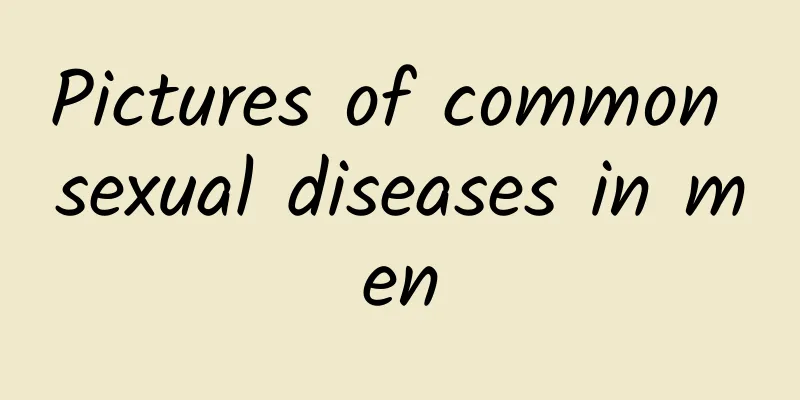Does prostate calcification require treatment?

|
Prostate calcification is a common disease. Most cases of prostate calcification are caused by prostatitis. After treatment, prostatitis is likely to leave calcification. As people age, the chance of calcification will gradually increase. If there are no abnormal symptoms of prostate calcification, it can generally be observed without treatment, but regular follow-up is required. Are prostate calcifications related to excessive sexual activity? The answer is yes. Like prostate calcification and prostate stones, prostate calcification is also caused by prostate necrosis and hardening, and prostate blood circulation disorders are one of the important factors leading to prostate necrosis and hardening. Excessive sexual intercourse will cause persistent congestion of the prostate, poor blood flow, and obstructed blood circulation, leading to the appearance of prostate necrosis and hardening. The higher the frequency of sexual intercourse, the deeper the degree of prostate necrosis and hardening. When the density of the prostate due to necrosis and hardening approaches that of bones and stones, and aggregates into shape, it will lead to the appearance of prostate calcification plaques. Therefore, for healthy men, in order to avoid the occurrence of prostate calcification spots, they must restrain themselves and avoid too frequent sexual life; for men who already have prostate calcification spots, in addition to restraining themselves and reducing the frequency of sexual life, they must also go to a regular medical institution for scientific, standardized and systematic treatment. Since prostate calcification is caused by prostate necrosis and hardening, as long as the problem of prostate necrosis and hardening is fundamentally solved, the goal of effectively treating and even completely improving prostate calcification can naturally be achieved. What are the symptoms of prostate calcification? 1. Urinary dysfunction In the early stage of prostate calcification, symptoms of urinary dysfunction generally appear: urgency, frequency, stinging during urination, burning in the urethra, white urine drops, waiting to urinate, weak urination, thin urine stream, and dribbling urine; as the disease progresses, symptoms of urinary dysfunction may appear: hematuria, incomplete urination, and even acute urinary retention. 2. Sexual dysfunction In the early stages of prostate calcification, symptoms of sexual dysfunction generally include premature ejaculation, weak ejaculation, short-lasting erection, and low libido. Some patients may also experience hypersexuality and abnormal erections. As the disease progresses, symptoms of sexual dysfunction may include low libido, inability to achieve an erection, lack of pleasure during ejaculation, pain during sexual intercourse, pain during ejaculation, and even hematospermia, retrograde ejaculation, and so on. 3. Local or systemic discomfort In the early stages of prostate calcification, symptoms generally include: swelling and pain in the lumbar sacral area, perineum, testicles, endocrine disorders, insomnia, dizziness, fatigue, slow thinking, memory loss, and other local or systemic discomfort. As the disease progresses, these symptoms will gradually worsen. |
<<: What are the black spots on the glans?
>>: Sperm can be white or yellow
Recommend
Why don't I have a morning erection?
In modern society, people are under great pressur...
Does glans inflammation affect pregnancy?
Penitis is an inflammation caused by fungal invas...
How to treat frequent urination at night
Many people have experienced this: they can't...
What does it feel like when a guy cums?
For women, they are the more passive party in sex...
What are the effects of Suo Yang? How long does it take to soak in wine before drinking?
Many little-known plants have powerful effects, s...
What causes testicular itching and rashes?
When it comes to vulvar itching, many men think t...
Is surgery necessary for thyroid nodules to heal?
For laymen like us, especially those who have nev...
What is the reason for a low ratio of free PSA to total PSA?
The ratio of scattered PSA to total PSA is slight...
What to eat when you have erection problems
Erectile dysfunction is a problem that troubles m...
How many times of masturbation will cause premature ejaculation
Masturbation is a physiological behavior of self-...
What should men eat to be good for the prostate?
As a man, the prostate is a symbolic organ, and a...
Can a man with low sperm count get pregnant?
Fewer sperm will naturally reduce the chance of f...
Symptoms of glans inflammation
Penile glans inflammation is a disease that many ...
How should adolescent boys exercise?
Everyone goes through puberty, which has a great ...
Don’t worry if you sweat a lot, there are some antiperspirant points hidden in your body!
When the weather is hot, you will sweat profusely...









